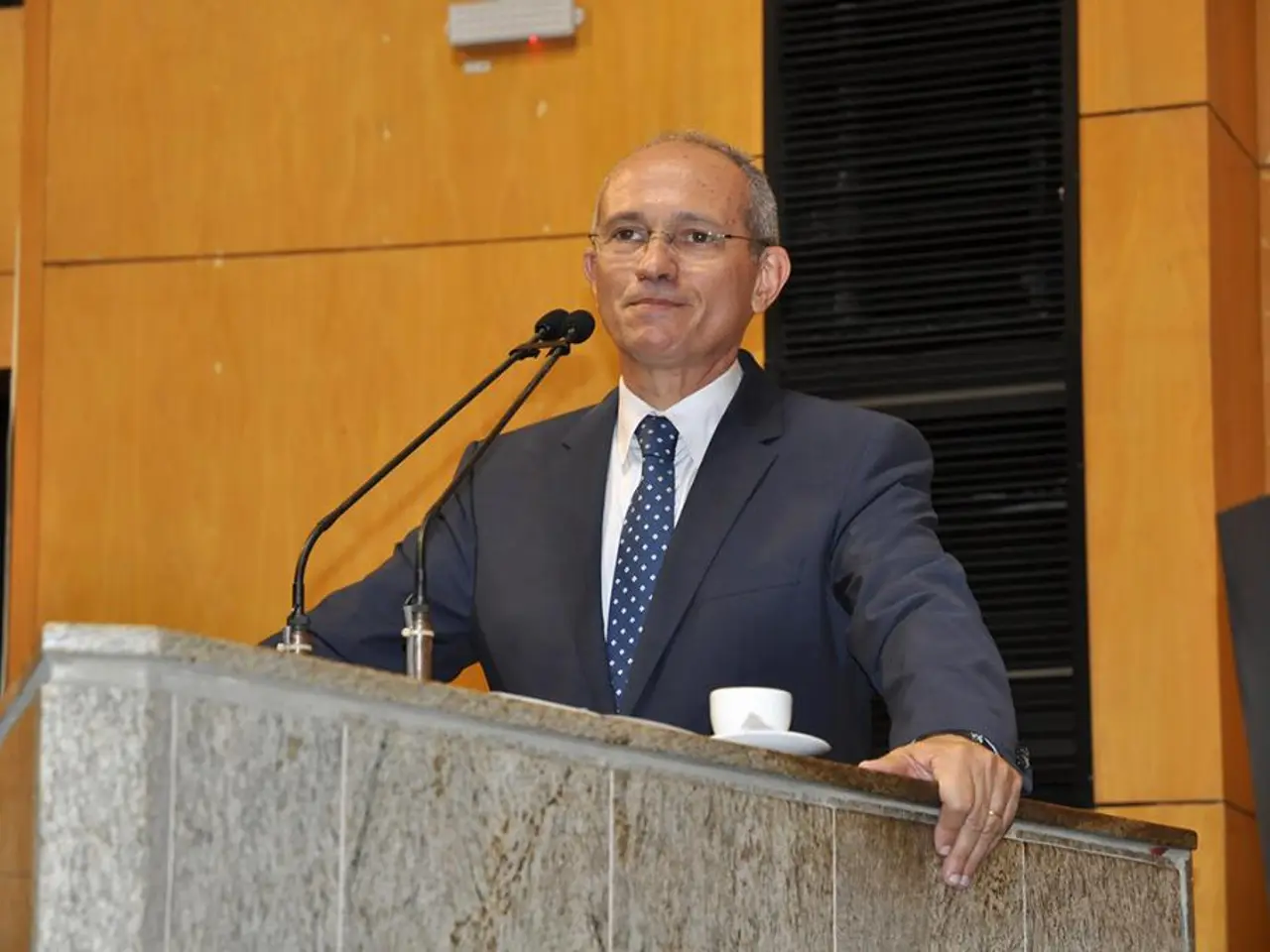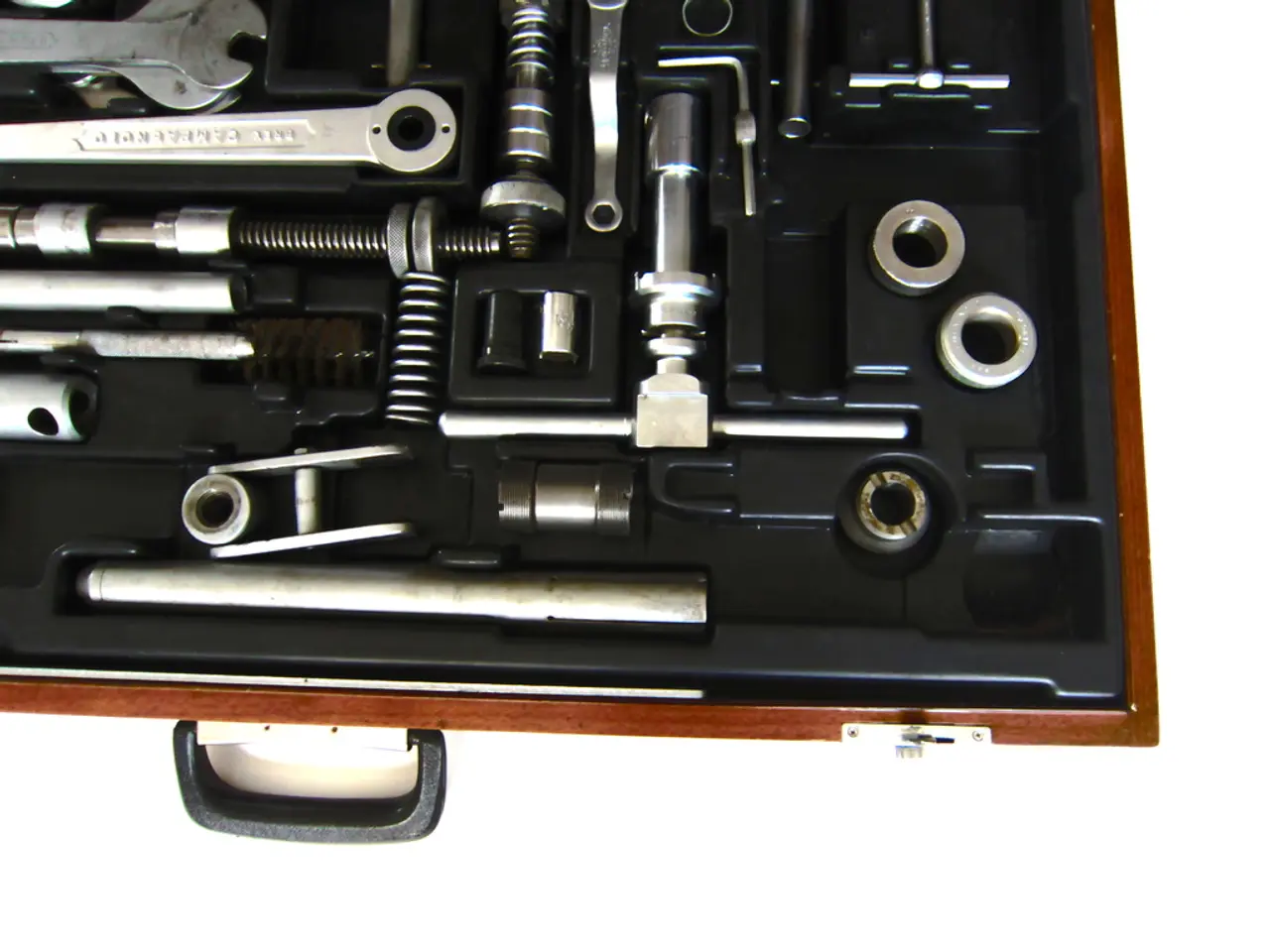Trump's proposed 100% tariff on chips might exempt Samsung and SK hynix, according to Lutnick's explanation
The United States Commerce Department has proposed a new policy that could exempt foreign chipmakers from a 100% tariff on imported semiconductors. This exemption is available to companies that commit to building semiconductor manufacturing facilities in the United States during President Trump's term.
To qualify for this exemption, companies must formally register their semiconductor plant construction projects with the U.S. Commerce Department. They will also undergo ongoing oversight by an auditor appointed by the department to verify that the facility is actively being built and not just planned. The companies must maintain verified construction progress in the U.S. throughout the building phase.
Howard Lutnick, the U.S. Commerce Secretary, explained that this policy rewards companies making "firm, verifiable investments in domestic production" and allows them to import chips without tariffs while the U.S. facilities are under construction.
Several foreign chipmakers, including Samsung Electronics and SK hynix, are likely to qualify for the tariff exemption due to their plans to build manufacturing plants in the U.S. Samsung Electronics runs a foundry in Austin, Texas, and is building a fabrication plant in nearby Taylor, scheduled to open in 2026. SK hynix has committed a $3.87 million investment in building an advanced chip packaging plant, with mass production targeted for 2028.
The Commerce Department is expected to complete an investigation under Section 232 of the Trade Expansion Act into the impact of those imports on U.S. national security, and more details of the semiconductor tariffs are expected soon.
Lutnick emphasized that Trump's goal is to bring semiconductor manufacturing to the U.S., where technologies can be controlled. This initiative could result in semiconductor-related investments of $1 trillion in the U.S., according to Lutnick's estimates.
Kim Rok-ho, an analyst at Hana Securities, stated that because Samsung Electronics and SK Hynix are constructing or planning fabs in the U.S., they will likely be exempt from the tariffs.
This approach aims to incentivize onshore semiconductor manufacturing by excluding active builders from the tariff, ensuring the tariffs do not hinder firms currently expanding U.S. chip production capacity.
[1] Source: CNBC, 2020 [3] Source: Reuters, 2020
- The strategy to incentivize onshore semiconductor manufacturing includes excluding companies that are actively building semiconductor facilities, such as Samsung Electronics and SK hynix, from the tariff, as they operate in the finance sector through their significant investments.
- With the proposed policy, the U.S. Commerce Department aims to foster growth in the technology sector by encouraging foreign companies in the finance industry, like Samsung Electronics and SK hynix, to invest in domestic production of semiconductors, ensuring technologies remain controlled within the country.




